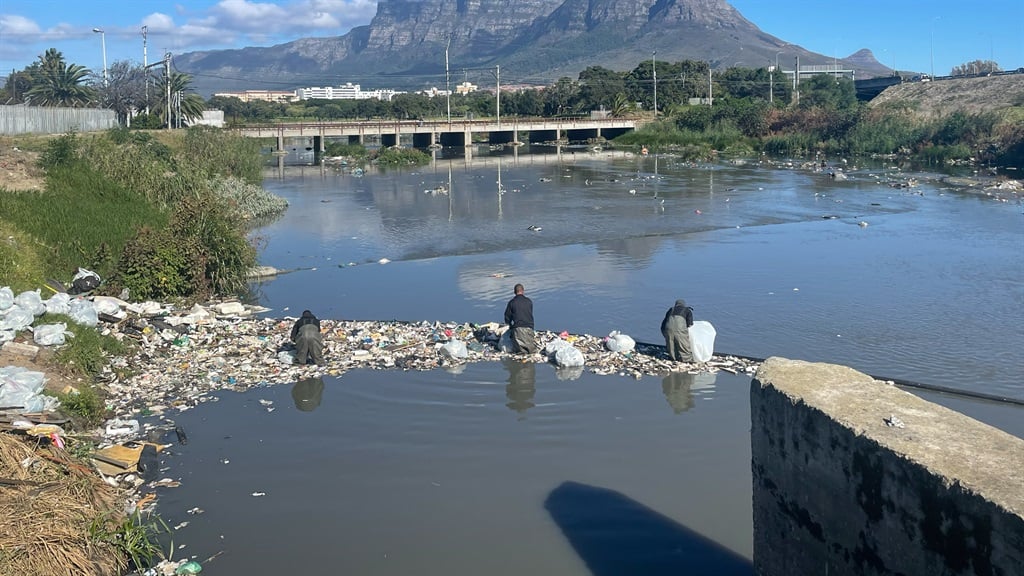- The Litterboom Project works to reduce environmental plastic waste.
- The organisation aims to intercept plastic pollution in rivers, before it gets into the oceans.
- The initiative also offers educational resources, supports waste management careers, and pushes for responsible production standards.
Saving the planet will take more than steel straws and paper bags.
“It’s not all about recycling. It’s about changing people’s mindsets about plastic. We don’t have the capacity to recycle our way through [the plastic crisis],” Cameron Service tells News24.
He is the founder of the Litterboom Project, which works to reduce environmental plastic waste.
Their primary focus is intercepting plastic pollution in rivers, before it enters the oceans.
“The litter that we do pick out of the river is a wide variety of materials. Some of it is plastic waste … down to smaller things like earbuds,” said Megan Swart, the project manager.
She was talking to News24 on the bank of the Black River in Cape Town.
Swart and her team were conducting one of their clean-ups.
Building a nationwide operation
The Litterboom Project operates on eight rivers in KwaZulu-Natal and two in Cape Town.
It removes roughly 1.5 tonnes of waste per clean-up.
The collected waste is then washed, dried, upcycled or recycled.
READ | Protesters take to the street over sewerage spills
Swart said early intervention was crucial for ensuring that the spread is reduced.
“The longer plastic is in the river, the smaller it will be, which means it’s harder to retrieve.”
According to Unesco, plastic accounts for almost 80% of ocean pollution and around eight to 10 million tonnes of plastic end up in the ocean annually.
“It doesn’t matter how much we clean rivers. That doesn’t solve the problem. It’s important for us to have a split focus,” Service said.
A holistic approach to waste management
One of the pillars of splitting the focus is educating people about the importance of plastic waste management.
Annually, a group of around 10 people spend 12 months learning about waste management from the organisation.
“We find that extraordinary things happen when people take things seriously, and there is unity,” Service said.
